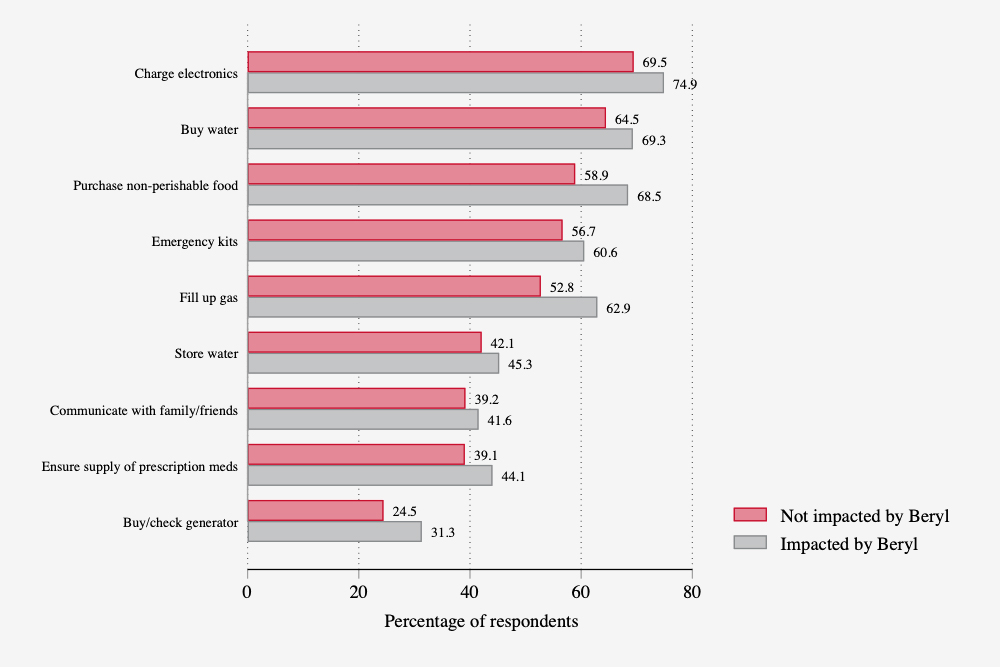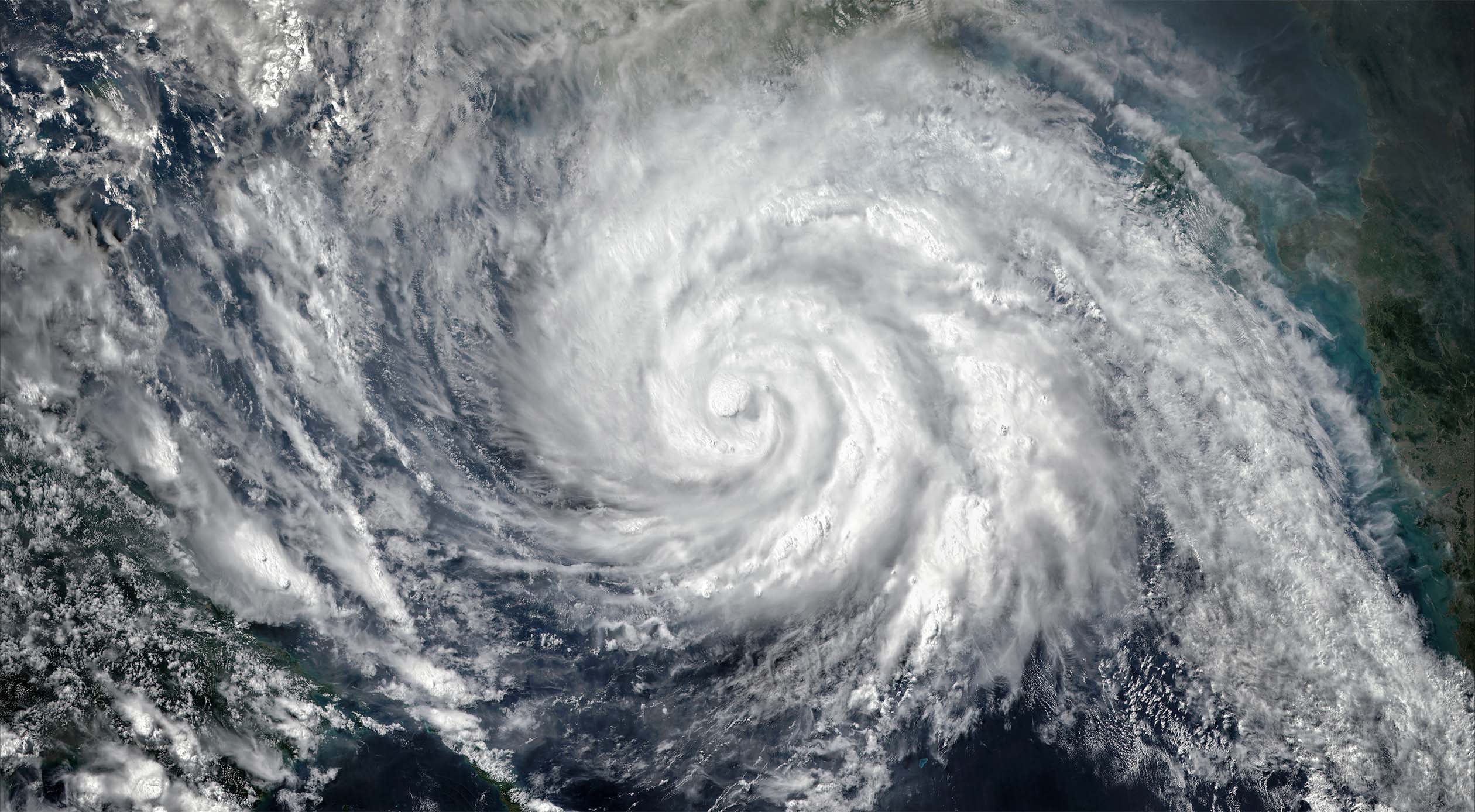As Houston and the Texas Gulf Coast continue recovering from Hurricane Beryl, a new survey from the University of Houston and Texas Southern University is providing insight into Texans’ past experiences with extreme weather, including prolonged power outages, and how those experiences impacted their preparedness for future events.
Key Takeaways
- Many Texas households have experienced blackouts from numerous natural disasters in recent years, especially in the Houston and greater Gulf Coast regions.
- The most common preparedness measures are charging electronic devices, purchasing water and non-perishable food, making emergency kits and filling up with gas. Respondents in Hurricane Beryl’s path were preparing at higher rates that those outside the path.
- While a substantial number of Texans take steps to prepare for hurricane seasons, significant gaps remain.
The Texas Trends Survey of 2,257 Texas residents by the Hobby School of Public Affairs at UH and the Barbara Jordan – Mickey Leland School of Public Affairs at TSU was conducted just before Hurricane Beryl roared ashore July 8, leaving nearly 3 million people in the greater Houston area without power. More than a week later, hundreds of thousands of customers remained without electricity.
“We don’t know yet the long-term impact of Beryl, but our findings show a large number of Texans have experienced serious negative impacts from extreme weather events in recent years, specifically blackouts,” said Agustin Vallejo, professor at the University of Houston’s Hobby School of Public Affairs. “And those experiences have shaped how they have been preparing for future natural disasters.”
Power outages in Houston have become one of the main sources of uncertainty in post-disaster recovery for the majority of Texans, especially for the most vulnerable populations”, added Maria Paula Perez Argüelles, a research associate at the Center for Public Policy who contributed to the report. Two months before Beryl, a powerful derecho pummeled central Houston with powerful winds that knocked out power to nearly a million people for days. And more than 50% of survey respondents say they lost power during Hurricane Harvey in 2017 and the winter freeze in 2021.

Given these experiences with past extreme weather events, the survey asked how people were preparing for the 2024 hurricane season. The most common preparedness measures were charging electronic devices (71%), buying water (66%) and non-perishable food (61%), building emergency kits (58%) and filling gas tanks (55%). The least common measure taken was the purchase of a generator or maintenance of an existing generator (26%).
“Even before Beryl made landfall, our survey showed that people in Beryl’s path took more steps to prepare,” said Gail Buttorff, associate director of the Center for Public Policy and professor of public policy at UH. “For example, when it came to buying food and filling up with gas, there was a 10% gap between those in the path and those outside of it.”
Still, while a substantial number of Texans take steps to prepare for hurricane seasons, the survey shows that significant gaps remain. The survey also finds that power outages are not isolated incidents, but rather a frequent consequence of severe weather events.
“Texans have faced significant negative impacts from natural disasters in recent years, especially blackouts,” concluded Pablo Pinto, director of the Center for Public Policy and professor at the Hobby School of Public Affairs. “Our findings not only underscore the vulnerability of Texas’ power infrastructure, particularly in Houston and the Gulf Coast region, but suggest a need for targeted solutions to improve power grid stability statewide.”
The report comes nearly a year after another Hobby survey for Houston Public Media that asked 800 Houstonians if they had considered moving out of the Houston region. In that survey, 57% of respondents said yes, they had thought about leaving, and 51% cited extreme weather as the primary reason.
